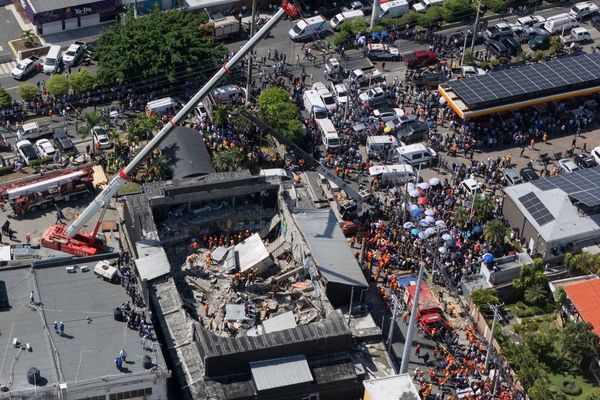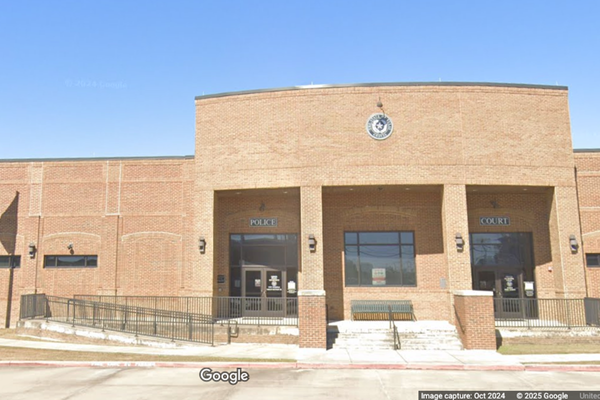
France has suspended visas for students from Niger, Burkina Faso and Mali, which leaves many stranded.
Ophelie Oudedrago, an 18-year-old university student from Burkina Faso, hunches over her laptop in the capital Ouagadougou, reviewing her notes from the first few weeks of medical school.
In the corner of her bedroom, against a wall, sits the suitcase she was meant to take to France, where she was admitted to the university of Montpellier.
But, like many students from Burkina Faso, Mali and Niger, Ouedraogo has seen her plans disrupted by a diplomatic crisis between Paris and the juntas that rule the three Sahelian countries, preventing her from obtaining a student visa and forcing her to follow along online.
France has suspended the issuance of visas from its consulates in Ouagadougou, as well as in Mali's capital Bamako and Niger's capital Niamey, citing security reasons.
"We can't control the situation, so we're stuck here and we try as best we can to be positive, even if it's complicated", Ouedraogo said.
The visa complications are just one impact that the deterioration of relations between the Sahel states and their former colonial power has had on people's lives.
All three countries have undergone coups over the past three years. All are facing jihadist insurgencies and have blamed France, historically an ally, for many of their struggles.
France's troops and ambassadors are being pushed out of the Sahel countries.
Following hostile demonstrations in the capitals, France in August updated its travel advisories to include the three cities in its "red zone", which already covered most of the region.
The decision to stop issuing visas by consulates on site is one aspect of what Foreign Minister Catherine Colonna called the "reduced operation of our embassies" in those countries.
It affects students, but also researchers and artists, and led to accusations by artists in France that Paris was retaliating at the expense of culture.
Dashed hope
No figures have been obtained from French or Sahelian authorities as to how many students have been affected, but according to the Council of Nigeriens of France (CONIF), a Paris-based organisation, an estimated 380 people in Niger alone have been affected.
In the 2022-2023 academic year, there were some 3,000 Malian students, 2,500 Burkinabe students and 1,200 Nigerien students in France, according to Campus France, a government agency for promoting French higher education abroad.
Colonna stressed that the suspension did not concern students or artists already in France.
"It was a hope we were led to believe in, and in a flash, it fell through", said Hassane Doulaye Abdoul-Kassoum, a doctoral student in geography at Abdou Moumouni University in Niamey, who was awarded a six-month scholarship to complete his thesis on pastoralism in Angers.
"Our authorities have not denounced scientific accords, they have denounced military accords. I don't see why the French authorities have cut all links with no exceptions", he said.
"We contribute to and influence the French-speaking world, we speak French and we will speak French, our references are in French. Abandoning that risks radicalising the discourse, and leaving a different image of France", said CONIF president Aboubakar Lalo.
Hundreds of students, researchers and artists have been uncertain about getting their visas due to deteriorating relations with France following coups in Burkina Faso, Mali and Niger over the past three years https://t.co/ljHyw7ywhN pic.twitter.com/OzOIlTIBq3
— Reuters (@Reuters) October 5, 2023
'Always welcome'
In the face of street protests in the Sahel countries, French authorities cited the safety of staff and claimed that the reduced presence on the ground was making it more difficult to issue visas.
They denied they were taking advantage of the situation.
"Artists, researchers and students from these countries are always welcome in France, in our cultural institutions as well as in our universities, and contrary to what has been said here and there, there has never been any question of it being otherwise", Colonna said.
She said it was not possible for Burkinabe, Malian or Nigerien students to obtain visas in neighbouring countries because consulates can only accept applications from people who legally reside in the country where the consulates are located.
France has hinted that the situation would be reassessed in the light of security developments.
Students have little hope that the situation will be resolved, given that the school year has already started.
"Just because this incident happened doesn't mean I have to change my programme, I have to finish my thesis, whether I'm able to move or not", said Baharou Sarimou Abdoulahi, a doctoral student in sociology at Niamey's Abdou Moumouni University who was due to complete his thesis at the Institut des mondes africains (IMAF) near Paris.
He pointed out that French academics may also be prevented from coming to Niger for their work.
"So I think the consequences are on both sides".
(AFP)







